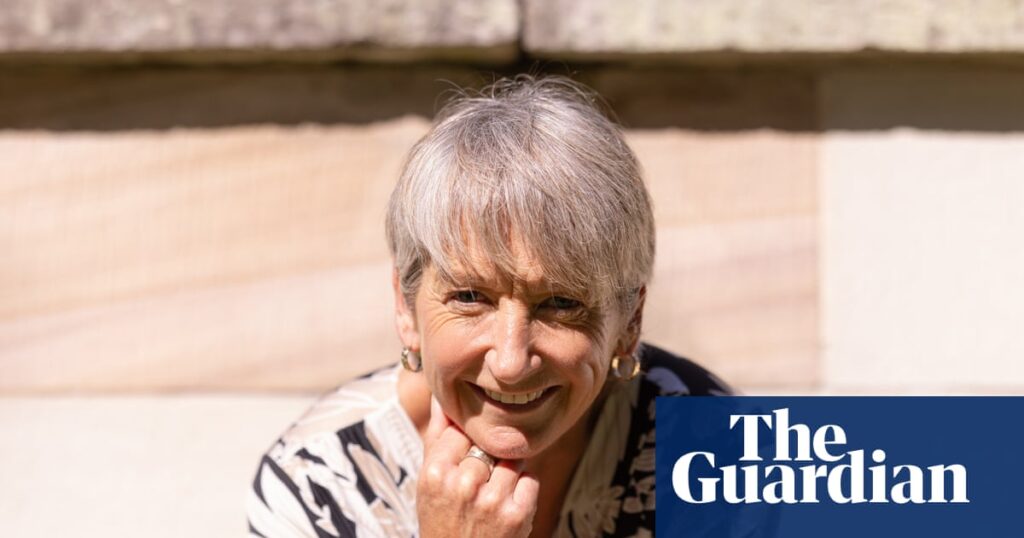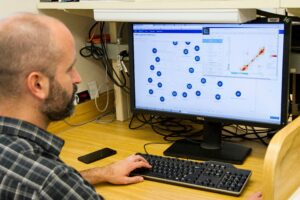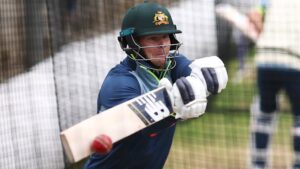
Layne Beachley, the seven-time world surfing champion, begins each day by visiting her “happy place.” Ideally, she spends no less than an hour surfing at her local break at Freshwater on Sydney’s northern beaches, after the “briefcase bandits and schoolkids” have departed. Today, she tweaks her routine to meet at the Royal Botanic Garden on the opposite side of Sydney Harbour.
With 12 surfboards in her garage and nearly five decades of surfing ingrained in her body, Beachley is prepared for any conditions. When the waves aren’t to her liking, or when her schedule is packed, she still finds time to immerse herself in the ocean. “I prioritize surfing over most things,” Beachley shares. “It’s my happy place. It’s where I decompress. It’s where I fill my own cup. And it helps me feel inspired and motivated, which then helps me inspire and motivate others.”
Beachley’s approach to surfing is flexible. “I have an all-or-something approach to it. If I don’t have time to surf, then I’ll take five minutes to run and jump in the water, immerse myself, ground myself, and cleanse my mind,” she explains.
From Fierce Competitor to Compassionate Leader
Beachley’s career has been marked by a relentless drive to be “the best of the best,” a mentality that she acknowledges came at a personal cost. “My peers tagged me as having the compassion of a tiger shark,” she admits. “I was very fierce, very focused, and very driven. I had expectations of myself, which I then projected onto other people. It was all just really toxic, and I was hard work to be around.”
Her journey to becoming a world champion began at the age of four, surfing with her family on the Manly scene. By 15, she was competing and winning against men, developing a strength and style that would take her around the globe. Despite setting high standards and breaking records, she was still searching for satisfaction.
“I got to my sixth title, my sixth consecutive one, and I realized that what I was going for was not the shiny thing,” she reflects. “It was not the trophies, it was not the world titles. It was self-worth, it was love.”
Personal Challenges and Triumphs
Beachley’s personal life has been as challenging as her professional one. Her mother, Valerie, died when she was six, and two years later, her father revealed that she had been adopted. This revelation fueled her drive to prove herself worthy of love through her achievements.
“I crafted a story around, ‘What’s going to make me worthy of love? OK, I’m going to have to become the best in the world,’” she says. “When I got to the sixth, I’m like, ‘OK, I’m enough now. But let’s go for seven.’ And that’s when my body broke down.”
Beachley’s physical and mental scars from competitive surfing are reminders of her past. A spine injury from a fall in Hawaii is the most dramatic, but her aches and pains now start at her hips and lower back. “All of my aches and pains are a result of self-abuse,” she admits. “I’ve flogged my body and never really allowed myself to heal until I got older and wiser.”
Empowering Others Through Experience
Since retiring from competitive surfing in 2008, Beachley has focused on mental health and wellbeing, partly due to a nudge from her husband, Kirk Pengelly. “I reserved the most broken, depleted version of myself for my husband and loved ones,” she says, recalling Pengelly’s question, “Why do I always get the broken Layne?”
Now a motivational speaker, Beachley uses her experiences to empower others. She co-founded Awake Academy in 2020 and will release a podcast called The Wake-Up Call, asking, “Why do we wait for the wake-up call before we actually start taking good care of ourselves?”
Beachley continues to inspire the next generation of surfers. Australia has had four other women claim world surfing titles since Beachley’s last in 2006. Last month, Molly Picklum, 22, joined the honor roll. “I first met Molly when she was 15,” Beachley recalls. “She won the Layne Beachley award at my talent identification camp. To see someone like that fulfill their potential, I have the utmost admiration and respect.”
As Beachley reflects on her legacy, she notes the significant shift in the surfing community. “This morning, the girls outnumbered the boys. That’s a massive shift. That’s a celebration. I love seeing the girls in the water. I have a little fist bump when I paddle out and see that.”
Layne Beachley’s journey from fierce competitor to compassionate leader serves as a powerful reminder of the importance of self-worth, resilience, and the ability to inspire others.





